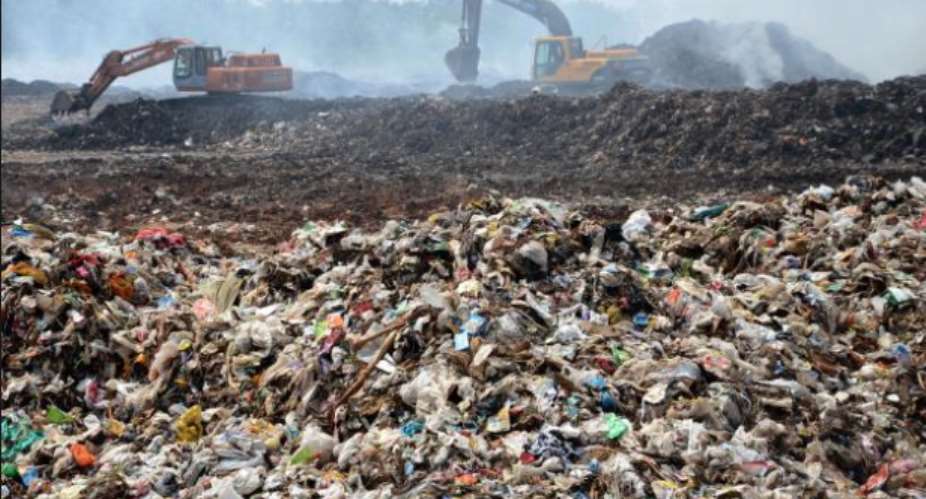Everyone produces waste, and the Swedes are no different. It's what they do with it that is unusual. Sweden recycles and sorts its waste so efficiently that less than 1 percent ends up in landfills. But perhaps even more interesting, and somewhat controversial, is that Sweden burns about as much household waste as it recycles, over 2 million tons, and converts this to energy.
But even with this amount of domestic waste, the country's 32 waste-to-energy (WTE) incineration plants can handle even more. And when Sweden runs out of its own garbage, it offers a service to the rest of garbage-bloated Europe: importing excess waste from other countries.
Waste-to-energy, or WTE, provides district heating to 950 000 Swedish households and electricity for 260 000 households. With the total amount of domestic and imported waste used for energy, Sweden is considered the world leader in recovering energy from waste.
”Waste today is a commodity in a different way than it has been. It's not only waste, it's a
business,” says Anna-Carin Gripwall, from Swedish Waste Management. ”We import approximately 800,000 tonnes yearly, and we sell a service. It's mainly from Norway, the UK, Ireland, and Italy.”
In Helsingborg, outside Malmö in the south of Sweden, about 40% of households get their district heating from garbage incinerated at the new Filborna plant run by Öresundskraft. ”A good number to remember is that 3 tonnes of waste contains as much energy as one tonne of fuel oil…so there is a lot of energy in waste,” says Göran Skoglund, Press Officer, Öresundskraft.
There is still some controversy in parts of the world regarding negative impacts of incineration of waste, but the Swedes are quick to reject the environmental arguments.
Gripwall explains, ”When waste sits in landfills, leaking methane gas and other greenhouse gasses, it is obviously not good for the environment. Waste to energy is a smart alternative, with less environmental impact, taking into account both by-products of incineration and emissions from transport.” She continues, ”Plus, recovering energy from waste exploits a resource that would otherwise be wasted.”
“At the same time, it is important that waste has been source separated before it can be considered for energy recovery. Metals have been sorted out, glass has been sorted out, as well as foodstuffs,” says Skoglund. ”It also must not contain hazardous waste such as batteries, light bulbs or other electrical waste. Nor should it contain packaging or newspapers.
These should be sorted out and left for material recycling….before it can be used for energy.” This is obviously a much easier proposition in countries that have a good recycling practices and infrastructure. Until then, and with landfills swelling across Europe, Sweden can help do its part, and do good business, by making use of other countries' waste.
Both Gripwall and Skoglund are clear on one point however, and that is that the long term
solution for waste management lies in producing less waste overall. ”The world has a garbage problem, there is no doubt about that,” says Skoglund, ”but in the meantime, waste incineration and extracting energy from the waste, is a good solution.”
See the Video News Release and Broll, to share and download, on http://mediaroom.sweden.se
Contacts:
Avfall Sverige
Anna.Carin Gripwall,Head of Communication
[email protected]
+46 40 35 66 08
avfallsverige.se
Avfall Sverige is the Swedish Waste Management and Recycling association with 400 members from
both the public and the private waste management and recycling sectors. 99,9 per cent of the Swedish population are represented through Avfall Sverige. Avfall Sverige represents its members in dealings with politicians, other decision makers, authorities and media, both in Sweden and internationally.
Swedish Waste Management's latest report (2014, in Swedish)
http://www.avfallsverige.se/fileadmin/uploads/Rapporter/sah_2014_140618.pdf
Swedish Waste Management on Waste to Energy (English)
http://www.avfallsverige.se/fileadmin/uploads/forbranning_eng.pdf
Öresundskraft, Filborna Plant
Göran Skoglund, Press Officer
[email protected]
The Swedish Institute
Sergio Guimaraes, Communications Strategist
www.si.se





 We’ll no longer tolerate your empty, unwarranted attacks – TUC blasts Prof Adei
We’ll no longer tolerate your empty, unwarranted attacks – TUC blasts Prof Adei
 Bawumia donates GHc200,000 to support Madina fire victims
Bawumia donates GHc200,000 to support Madina fire victims
 IMF to disburse US$360million third tranche to Ghana without creditors MoU
IMF to disburse US$360million third tranche to Ghana without creditors MoU
 Truck owner share insights into train collision incident
Truck owner share insights into train collision incident
 Paramount chief of Bassare Traditional Area passes on
Paramount chief of Bassare Traditional Area passes on
 Two teachers in court over alleged illegal possession of BECE papers
Two teachers in court over alleged illegal possession of BECE papers
 Sunyani: Victim allegedly shot by traditional warriors appeals for justice
Sunyani: Victim allegedly shot by traditional warriors appeals for justice
 Mahama vows to scrap teacher licensure exams, review Free SHS policy
Mahama vows to scrap teacher licensure exams, review Free SHS policy
 Government will replace burnt Madina shops with a new three-story, 120-store fac...
Government will replace burnt Madina shops with a new three-story, 120-store fac...
